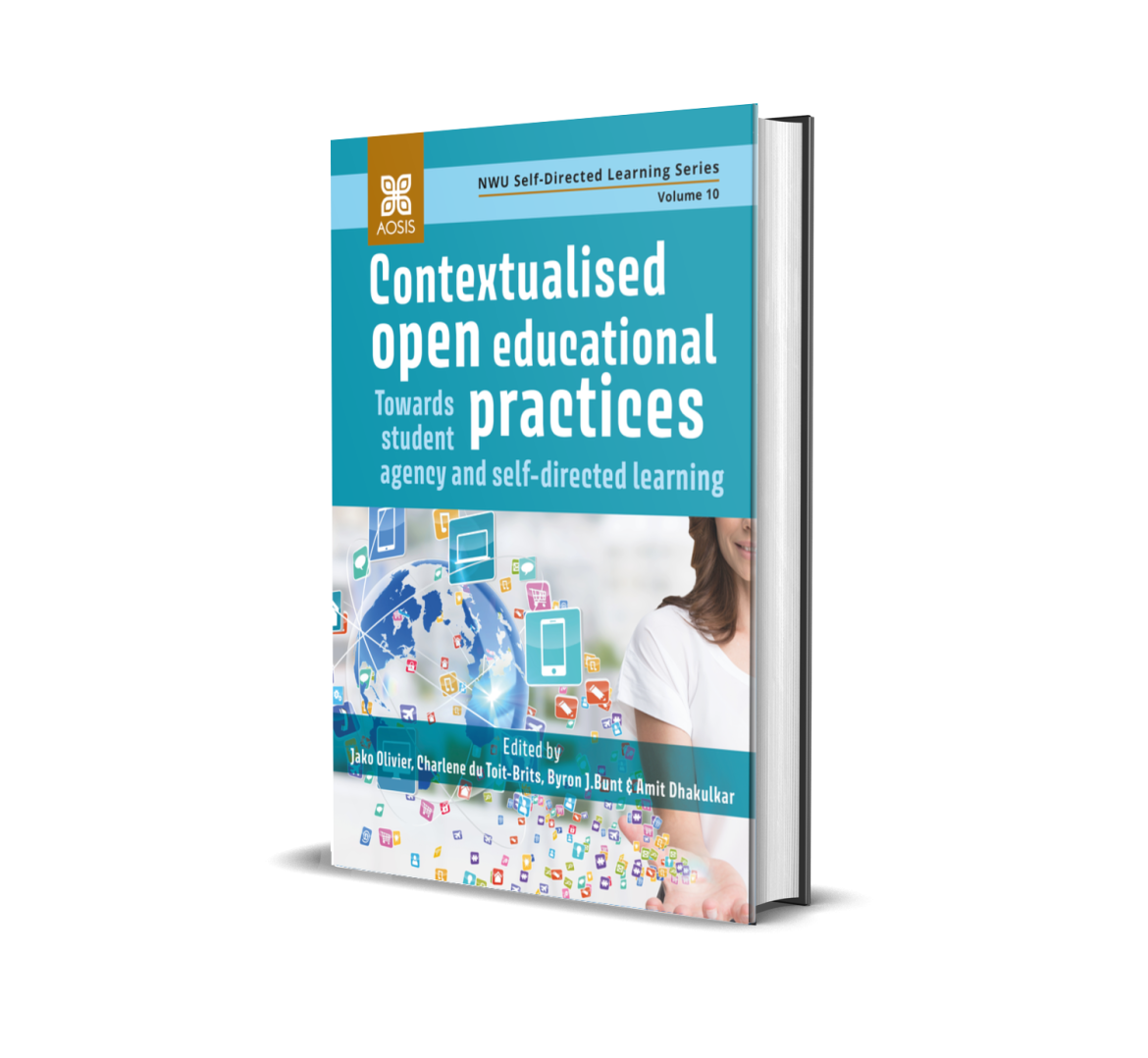Contextualised open educational practices: Towards student agency and self-directed learning is published by AOSIS Scholarly Books.
This book covers original research on the implementation of open educational practices through the use of open educational resources at the university level. The emphasis on open education in this book is on contextualising resources, supporting student agency and fostering self-directed learning specifically within a South African milieu. The envisaged chapters cover conceptual and review research and empirical work focussing on open educational practices and the use of renewable assessments.
The work starts off with an overview of an institutional-wide open education project that prompted the research followed by research on open education in terms of various modules in the health science, music education, law, philosophy, dietetics, anthropology, French language learning, journalism and political science. There is a clear gap in the literature on open education in terms of open educational practices, specifically in terms of contextualising resources, supporting student agency and fostering self-directed learning in a South African context. Despite the existence of some general works on open education in terms of policy, social justice and open textbooks, this book will be unique in exploring the intersections of openness, specifically with contextualisation, student agency and self-directedness.
Copyright (c) 2022 Jako Olivier, Charlene du Toit-Brits, Byron J. Bunt, Amit Dhakulkar (Volume editor)
There is palpable urgency for South African higher education institutions (HEIs) to consider blended and embedded learning strategies and offer teaching and learning resources to equip students to take charge of their learning. In this light, this book goes a long way to answering pertinent questions about how students can nurture self-directed learning with support in the post-COVID-19 sphere, what roles open-learning resources and practice play in enhancing students’ self-directed learning, and lastly, how the use of open-learning resources may be maximised in a South African higher education institution.This book tackles the issues of systematic reviews and empirical case studies and weaves them together uniquely to create a practical and suited product for the South African higher education context. Throughout this book, the authors present compelling arguments for the adoption of open-education practices and demonstrate their use in different disciplines within one institution of higher learning. It is a must-have for scholars interested in creating activities to boost their students’ self-directed learning competencies.
Dr Emmanuel Mushayikwa, WITS School of Education, Faculty of Humanities, University of the Witwatersrand, Johannesburg, South Africa

